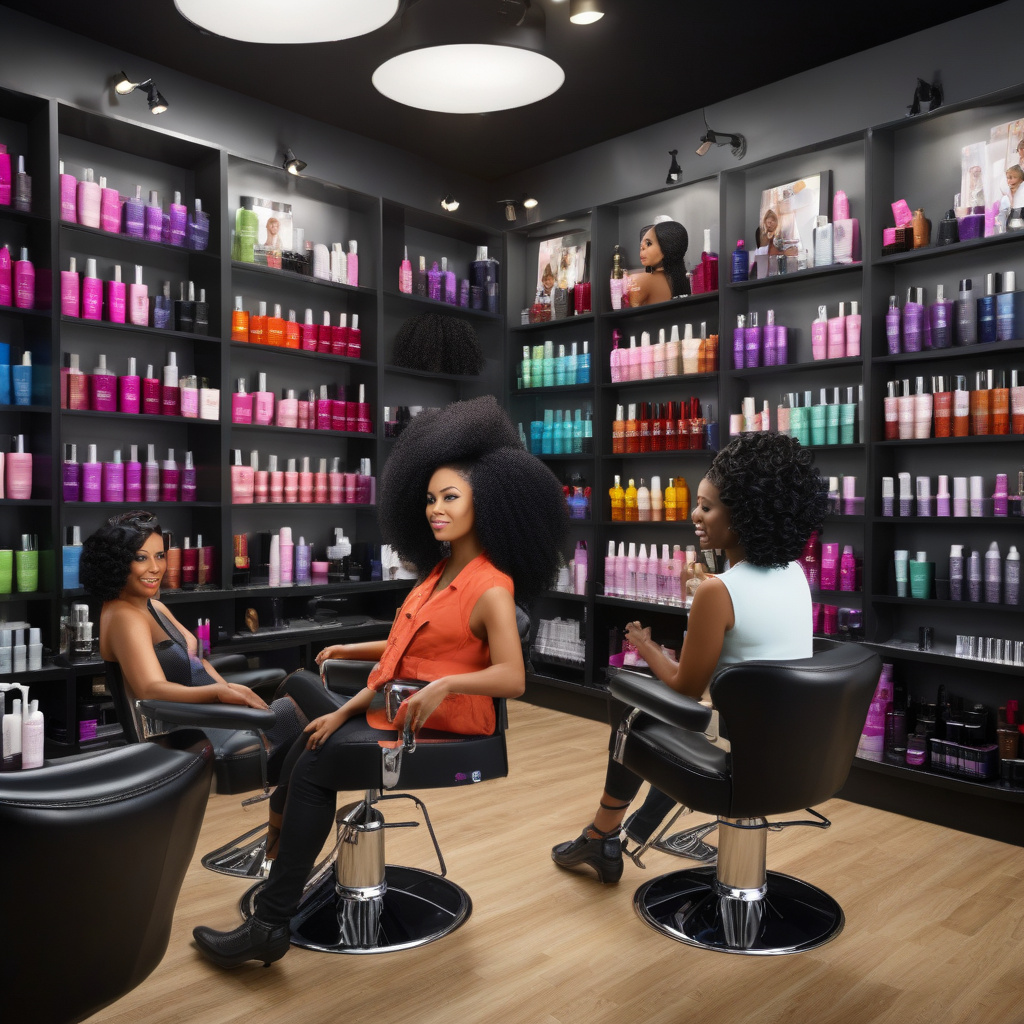Trump’s Tariffs Imperil US Black Hair Businesses
The landscape of the Black hair industry in the United States is facing a significant threat due to the recent tariffs imposed by President Donald Trump. The prices of essential products like hair extensions and hair glues, crucial for creating wigs and weaves, have skyrocketed following the tariffs on China and Vietnam, where the majority of Black beauty products are manufactured.
For many Black entrepreneurs and small business owners in the hair industry, these tariffs have introduced unprecedented challenges. The increased costs of importing hair products have directly impacted their bottom line, making it harder to maintain competitive pricing and meet the demands of their customers. As a result, many businesses are now at risk of closure, and the future of the Black hair industry in the US hangs in the balance.
The Black hair industry has long been a significant cultural and economic force in the United States. According to a Nielsen report, Black consumers spend an estimated $2.54 billion annually on hair care products, with a considerable portion of this expenditure going towards extensions, wigs, and weaves. The industry has also been a source of empowerment for many Black women, providing opportunities for entrepreneurship and self-expression.
However, the impact of the tariffs is not only economic but also cultural. Black hair products are not just commodities; they are deeply intertwined with identity and heritage. The ability to style and maintain their hair is a crucial aspect of self-expression for many Black individuals. The increased prices and limited availability of these products can have far-reaching effects on the community, affecting not only businesses but also individuals who rely on these products for their daily lives.
In response to these challenges, some Black hair businesses are exploring alternative sourcing options and renegotiating contracts with suppliers to mitigate the impact of the tariffs. However, these solutions are not always feasible for small businesses with limited resources and bargaining power. As a result, many are left with no choice but to pass on the increased costs to consumers, risking pricing themselves out of the market.
The situation facing Black hair businesses in the US underscores the broader impact of trade policies on minority communities and small businesses. While the tariffs were intended to address trade imbalances and protect American industries, the unintended consequences have disproportionately affected Black entrepreneurs and consumers. It is crucial for policymakers to consider the diverse impacts of trade decisions and work towards solutions that support the resilience and growth of all communities.
In conclusion, the tariffs imposed by President Trump have placed a significant strain on US Black hair businesses, threatening their viability and impacting the cultural fabric of the Black community. As businesses navigate these challenges, it is essential for stakeholders to advocate for policies that promote inclusivity, economic empowerment, and cultural preservation. The future of the Black hair industry in the US depends on collective efforts to address these pressing issues and ensure a vibrant and sustainable ecosystem for all.
black hair, US economy, trade policies, small businesses, cultural heritage












